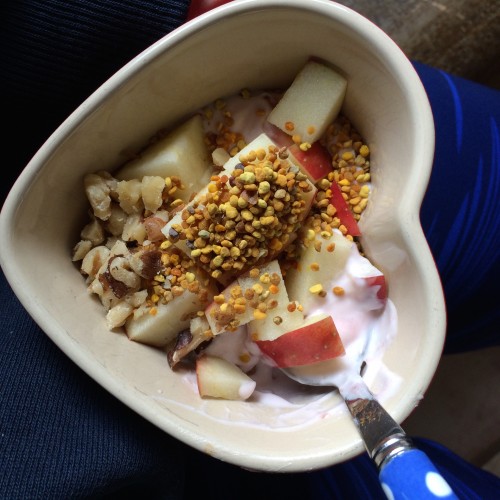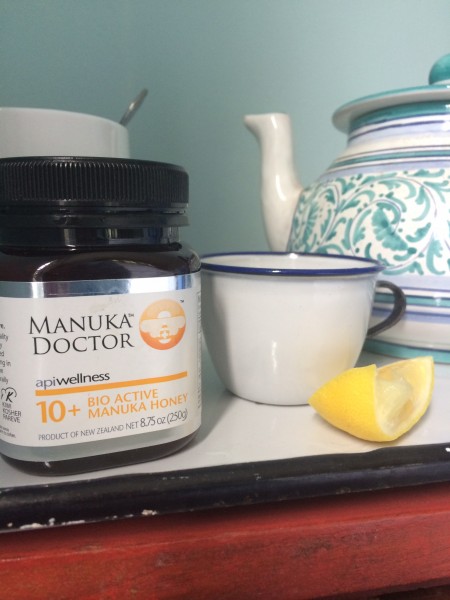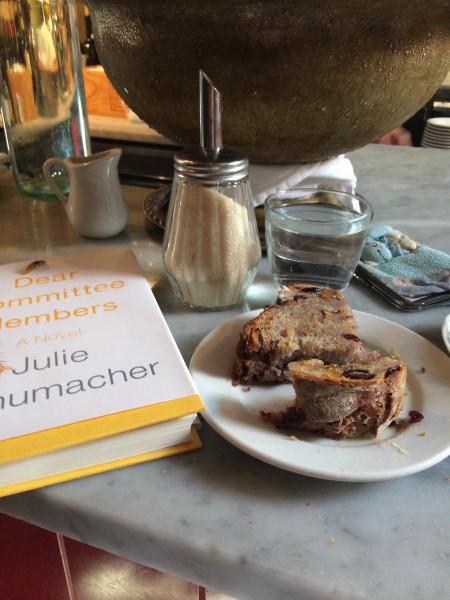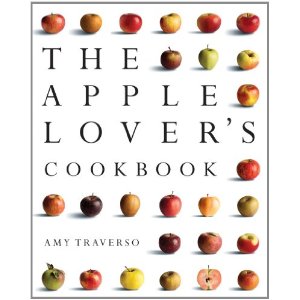 I’m of the belief that honey can cure just about whatever ails you. Raw, unfiltered, creamed. Tupelo, orange blossom, clover. I consume it all, in particular on a day like today, when I’m home sick with a hybrid of bronchitis and walking pneumonia (feel free to send chicken soup…extra noodles). To deal with my little illness I splurged on Manuka honey, which costs almost as much as a white truffle on the black market, but it’s healing properties are well documented (and it tastes better than Robitussin).
I’m of the belief that honey can cure just about whatever ails you. Raw, unfiltered, creamed. Tupelo, orange blossom, clover. I consume it all, in particular on a day like today, when I’m home sick with a hybrid of bronchitis and walking pneumonia (feel free to send chicken soup…extra noodles). To deal with my little illness I splurged on Manuka honey, which costs almost as much as a white truffle on the black market, but it’s healing properties are well documented (and it tastes better than Robitussin).
 My devoutness to the cult of the bee began about seven years ago when I was an editor at Saveur. There were two assignments that really woke me up to not only the plight of the bee (which is currently very much in the news, as it should be), but also how truly magical and necessary they are to our everyday lives.
My devoutness to the cult of the bee began about seven years ago when I was an editor at Saveur. There were two assignments that really woke me up to not only the plight of the bee (which is currently very much in the news, as it should be), but also how truly magical and necessary they are to our everyday lives.
The first assignment was when I edited a review of three terrific books (some of which are now out of print, but fortunately still available on Amazon, I’ve included links below) that covered everything from bee culture and bee lore, to bees in science and agriculture. From reading those books book I learned several things:
*That a third of our food supply relies on pollination by bees, many of whom travel via truck across country—like professional hives-for-hire—to pollinate crops.
*That the invention of the first box hive containing moveable shelves occurred in the 19th century, and this was important because it allowed honey and honey to be harvested without killing the bees.
*And that Virgil and Aristotle thought that honey fell from heaven. Cool, right?
Not long after I read these books, I went to New Zealand and met an amazing woman who had been a pilot and architect before opening a honey business. She not only managed hives that produced honey and other bee products for her to sell at her store, but ran a cafe where every dish contained honey, and also had a learning facility devoted to bees (she also claimed that a regular diet of bee pollen and royal jelly helped cure her of cancer). Since then I have been prone to include honey often in my cooking—as a sweetener in homemade granola, marinades, vinaigrettes and even instead of sugar for my coffee, a trick I picked up when I went to Savannah Bee.Â
My newest favorite way to eat from the bee comes from my latest restaurant crush—Buvette in NYC. I can wax on about the perfection of this cozy, chic, French resto for hours (and if you can’t make it to New York City anytime soon, there’s also THIS beautiful cookbook); but instead, I’ll just share the marvel that is their breakfast toast of thick walnut-cranberry bread, slathered with melted butter and then liberally sprinkled with bee pollen. I would never have thought of doing this before, but now it seems like all my toast must be sliced thickly, slathered generously and topped healthfully with bee pollen (Side note: the novel pictured alongside my Buvette toast is hilarious and you should read it).

I also now add pollen to my morning yogurt (see heart dish above), along with chopped honeycrisp apples, toasted walnuts, a drizzle of honey, maybe some toasted coconut…it’s a morning cavalcade of goodness. For the kids, particularly before a sports practice, I’ve been slicing a banana into discs then drizzling with honey and sprinkling with cinnamon. With all the honey consumption that is going on in my house, I’ve even considered keeping my own hive…don’t tell my husband. But until then, I’ll keep spreading the word of the honey bee’s goodness and hopefully we can all keep them around for a very long time to come.
BEE LITERATURE:
Letters from the Hive by Stephen Buchman







